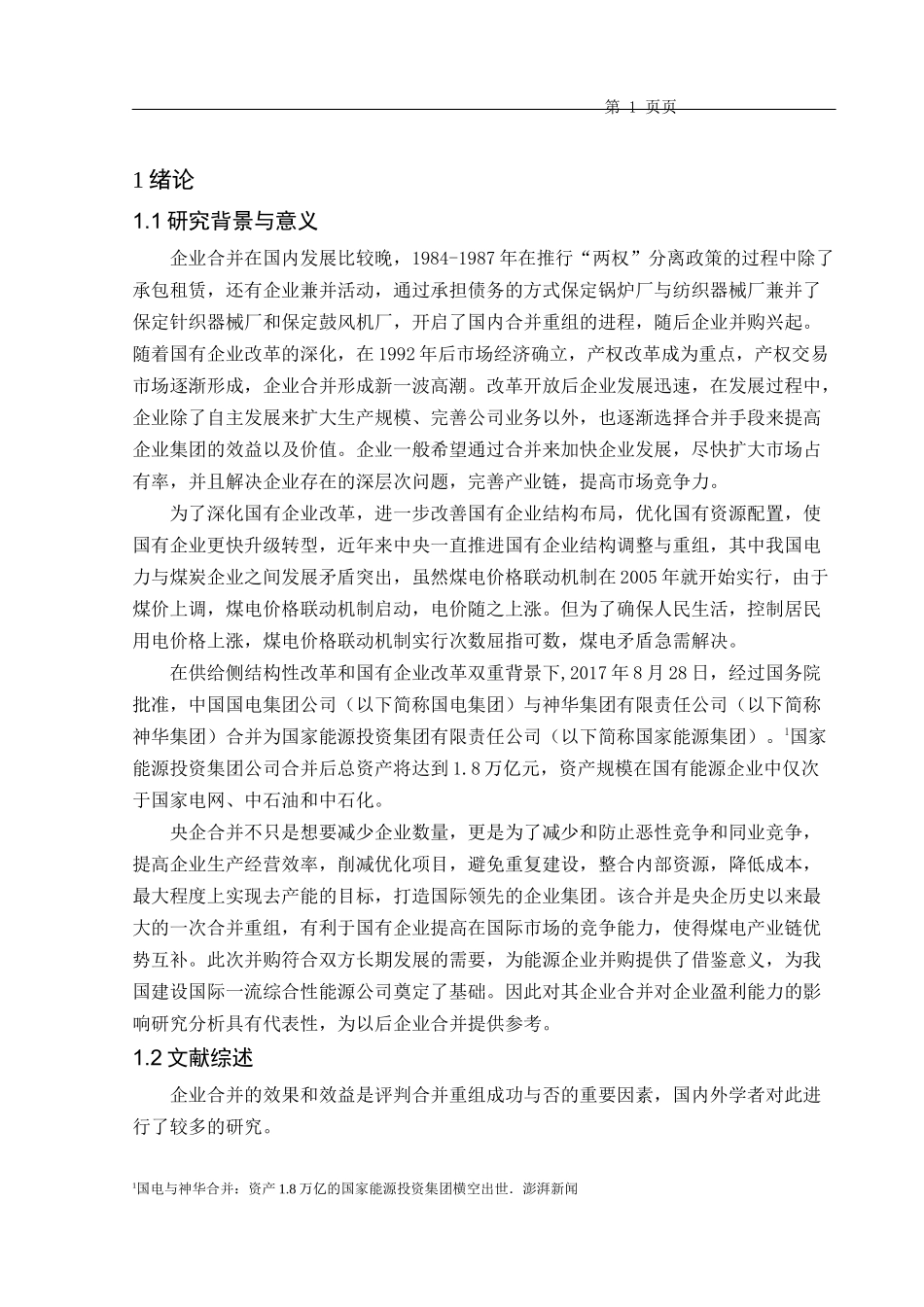I企业合并对盈利能力的影响分析――以国电和神华合并为例摘要目前我国国有企业处于战略转型阶段,传统国有企业矛盾日益明显,产能过剩问题突出,其中煤电产业急需转型。本文选择中国国电集团公司与神华集团有限责任公司的合并重组案例来进行研究,此次合并行为是煤炭业与电力产业结合的典型案例,是目前国有企业自国资会成立以来最大规模的合并活动,研究此案例能为之后国有能源企业合并提供一定借鉴意义,为建造世界一流能源企业奠定基础。本文运用案例研究法,基于国电与神华合并前后财务报表来进行分析。为了反映前后盈利能力的影响,对其前后盈利能力、运营能力、发展能力来进行对比分析。以此来反应此次合并对盈利能力的影响。经过对比研究分析表明,对比合并前国家能源集团的盈利能力与发展能力都在不同程度得到了增长,整体活力能力增强,企业发展趋势呈现良好状态,表明此次合并在短时间内较为成功。关键词:企业合并,国电集团,神华集团,盈利能力IIAnalysis of the Impact of Business Combination on Profitability——Taking Guodian and Shenhua as an ExampleAbstractAt present, China's state-owned enterprises are in the stage of strategic transformation, the contradictions of traditional state-owned enterprises are becoming increasingly obvious, and the problem of overcapacity is prominent. Among them, the coal power industry urgently needs transformation. This article selects the merger and reorganization case of China Guodian Corporation and Shenhua Group Co., Ltd. for research. This case is representative and is currently the largest merger activity of state-owned enterprises since the establishment of SASAC. This merger is a typical case of coal industry and power industry combination, which will provide some reference for the merger of state-owned energy enterprises and lay the foundation for the construction of world-class energy enterprises.This article uses case studies to analyze the financial statements before and after the merger of Guodian and Shenhua. In order to reflect...


